
Wildlife populations around the world are in crisis. Recent analysis by the World Wide Fund For Nature estimated that over the past 50 years, wildlife populations have reduced by 73 per cent. In the face of these unprecedented declines, it's more important than ever that scientists understand the challenges animals face and how they're responding to a changing planet. This requires data collection on a scale never attempted before - tracking the lives of animals at a global level and scientists are turning to technology to make this mammoth task possible.
The development of radio-tracking technology has already opened many new research avenues for scientists interested in animal behaviour, but these studies have been limited by the large size of the tracking devices and the need to follow the animals with receivers, or retrieve the tags later, to access the data.
In industry, new technological advances such as miniaturised sensors and communication devices have enabled the development of large-scale wireless digital networks that track the location and status of objects, from shipping containers to factory equipment - known as the 'Internet of Things' or IoT.
ICARUS the International Cooperation for Animal Research Using Space - aims to leverage this technology to create a global animal observation network to track and monitor wildlife on an unparalleled scale. The system uses state-of-the-art miniature transmitters to relay data about animals' movements, activity and even health, to receiver antennae in space, allowing scientists to tap into a wealth of research data through their computers.
"We're about to have an internet of animals and that's super exciting," says Prof Martin Wikelski, Director of the Department of Migration at the Max Planck Institute of Animal Behavior and ICARUS Initiative founder.
This story is from the {{IssueName}} edition of {{MagazineName}}.
Start your 7-day Magzter GOLD free trial to access thousands of curated premium stories, and 9,000+ magazines and newspapers.
Already a subscriber ? Sign In
This story is from the {{IssueName}} edition of {{MagazineName}}.
Start your 7-day Magzter GOLD free trial to access thousands of curated premium stories, and 9,000+ magazines and newspapers.
Already a subscriber? Sign In
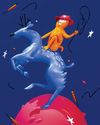
Animals have culture like us, but will share theirs with other species
New research suggests that cultural practices in the animal kingdom can develop across species boundaries
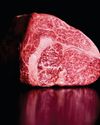
Scientists identify a better predictor for heart health than BMI
You want this fat in your steak, but not in your muscles
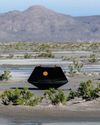
Asteroid sample reveals life's origin
A 'briny broth' may unlock the secrets of life on Earth... and further afield
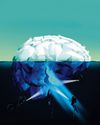
DETECTING DEMENTIA
New science is uncovering how Alzheimer's could be detected decades before symptoms strike. Could it give us the head start needed to fight back and defeat the disease?

A dopamine detox does little for your brain chemistry
Swearing off social media may well improve your mood, but probably not because it resets your dopamine levels

Polyphenols: The key to a healthier, longer life or just another health food fad?
A special type of nutrient that's only found in fruit and veg could be more important to your health than vitamins and minerals

The strange daily routines of successful people won't bring you fame and fortune
Punishing 2am workouts and fistfuls of supplements unlikely to help you get ahead in life.

ALL THE LIGHT - WE CAN SEE
New Jersey is the new Roswell – or so it might seem after a swarm of bright lights, glowing orange-red orbs and unidentified flying objects filled the skies throughout December 2024.
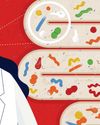
HARD TO STOMACH
Despite being a common condition, the cause of irritable bowel syndrome has proven tricky to find. Now researchers are beginning to understand what's going on in our guts... and the best ways to soothe them

How do you treat perimenopause symptoms?
Both hormonal and natural treatments can be used to treat disruptive perimenopause symptoms. But which ones are right for you?